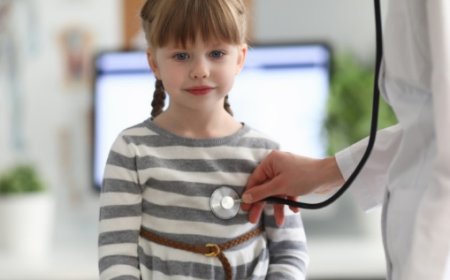Attention Children to Heart Palpitations!
Information provided by Cardiology Specialist Dr. Muharrem Arslandağ

Information provided by Cardiology Specialist Dr. Muharrem Arslandağ
Heart palpitations in children, like in adults, can occur for many different reasons. Heart palpitations refer to the heart beating faster or more irregularly than normal. This can be seen from time to time in many children and is usually not a sign of a serious health problem. However, sometimes it can be a harbinger of an underlying medical condition.

Causes of Heart Palpitations: Physical and Emotional Triggers
There are many causes of heart palpitations in children. These include physical activities, emotional states such as excitement, stress, or anxiety. In some cases, consumption of caffeinated beverages or side effects of certain medications can also cause palpitations. Rarely, heart palpitations can be a sign of an underlying heart condition. Therefore, the frequency, severity, and other accompanying symptoms of palpitations should be carefully monitored.
In evaluating heart palpitations in children, it is important to consider lifestyle and environmental factors. Factors such as whether children are under excessive physical or emotional stress, their sleep patterns, and eating habits can affect the frequency and severity of heart palpitations. Caffeine consumption in particular can cause heart palpitations in some children, so consumption of caffeinated foods and drinks such as energy drinks, cola, and chocolate should be limited.
It is normal to have heart palpitations during exercise or physical activity. When children are active or exercising, their heart rate increases. Emotional responses such as stress, fear, or excitement increase heart rate. These kinds of emotional states cause heart palpitations in children.
Here are some of the reasons for heart palpitations in children:
· Physical exertion or exercise: When children are active or exercising, their heart rate increases. This is a normal response and does not usually cause any problems.
· Emotional states: Stress, fear, or excitement can increase heart rate. This can lead to heart palpitations in children.
· Caffeine consumption: Caffeinated beverages such as cola, chocolate, and energy drinks can increase heart rate. Children should limit their intake of caffeinated foods and drinks.
· Iron deficiency anemia: In anemia, the body does not get enough oxygen, so the heart tries to beat faster to compensate. This can lead to heart palpitations.
· High fever: High fever increases body temperature, which can increase heart rate. This can occur during infections or other illnesses.
· Hyperthyroidism: Hyperthyroidism is a condition in which the thyroid gland is overactive. This can cause heart palpitations in children.
· Substance use: In some cases, children may use harmful substances such as caffeine or drugs during adolescence. These substances can increase heart rate and cause heart palpitations.
If you are concerned about your child's heart palpitations, it is important to see a doctor. The doctor can evaluate your child's symptoms and determine the underlying cause. In most cases, heart palpitations in children are harmless and do not require treatment. However, if the palpitations are caused by an underlying medical condition, treatment of the underlying condition will usually resolve the palpitations.
Here are some tips for parents of children with heart palpitations:
· Keep a track of your child's palpitations. This includes noting the date, time, duration, and any other symptoms that occur.
· Talk to your doctor about your child's palpitations. The doctor can help you determine if the palpitations are a cause for concern.
· Help your child manage stress. Stress can trigger heart palpitations in some children. Find ways to help your child relax and de-stress.
· Make sure your child gets enough sleep. Lack of sleep can also trigger heart palpitations.
· Encourage your child to eat a healthy diet. A healthy diet can help keep your child's heart healthy.
What's Your Reaction?











































